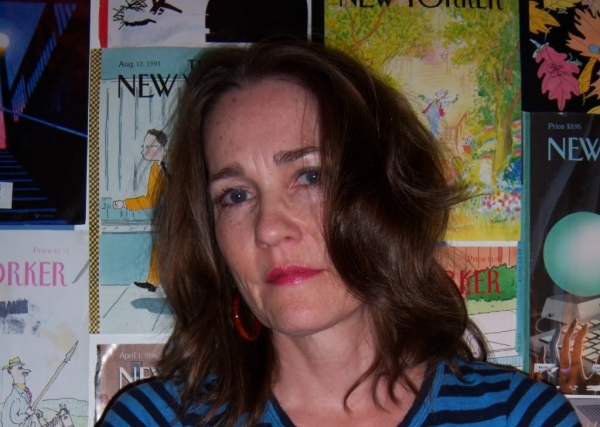Katy Bolger Wins the October Sidney Award for Article on Environmental Catastrophes on a Navajo Reservation in Northeast Arizona
Katy Bolger has won the October Sidney Award for an extraordinary piece about the environmental catastrophes produced by coal and uranium mining on a Navajo reservation in Northeast Arizona. Bolger’s piece is part of the series, “The Forgotten Navajo: People In Need,” which was published in the Pavement Pieces website of New York University’s Arthur L. Carter Journalism Institute.
Bolger’s findings include:
- Four tons of uranium were extracted from the reservation over several decades, resulting in poisoned wells and elevated levels of radiation in Navajo homes, but the Environmental Protection Agency (EPA) only started posting warnings about the poisoned water three years ago.
- The EPA now says, “Potential health effects include lung cancer from inhalation of radioactive particles, as well as bone cancer and impaired kidney function from exposure to radionuclides in drinking water.”
- No corporate entity has ever been prosecuted for uranium contamination on Navajo soil, and yet as far back as the 1930s there was an awareness of the health risks associated with uranium.
- A new coal-fired power plant may be built on the reservation because some tribal leaders believe the economic benefits outweigh the environmental dangers.
- Of the approximately 40,000 homes on the reservation, 18,000 are without electricity, because they are not served by the existing power plants on the reservation. These homes are heated with wood stoves.
Sidney Award judge Charles Kaiser said, “Although Katy Bolger is still a journalism student, she produced a fine example of investigative reporting for her school’s website. The piece is both thorough and balanced – describing the antagonism of many tribal leaders to outside environmentalists, despite the many catastrophes the tribe has suffered from unregulated exploitation of the reservation’s natural resources.”
Katy Bolger is a student at the graduate school of journalism at New York University where she has reported on the 2008 campaign, the inauguration, poverty and AIDS. Her work has appeared in the New York Daily News, and at IPSnews.net, and virtueonline.org. She is a humanities teacher at City As School H.S. in New York City.
Backstory
OCTOBER, 2009
Katy Bolger, graduate student at the school of journalism at New York University and winner of the October Sidney, talks about reporting on the Navajo Nation for her piece in the series,”The Forgotten Navajo: People In Need.”
What surprised you most as you began to look into the Navajo Nation?
Going in, I knew little to nothing about the Navajo Nation, its people or its issues; coming out, I was overwhelmed by the task: how to write a story of such magnitude, to hit on the big picture, while focusing on the specific stories, to do justice to the Nation’s history while relaying the immediacy of the problems. The answer, of course, was in the voices of the people, but not just the victims, rather all the people: those who are underserved, as well as those who hold out a hand to the Navajos: their own politicians, coal company representatives, academics, and government bureaucrats. The story speaks for itself.
What has the response been since you published it?
The response to the story of the travails of the Navajo people has been sympathy, of course, but also incredulity. Well-educated, well informed people have a hard time accepting the stories I tell them about the things I have learned: it just doesn’t seem possible in this day and age….
If you went back to this story in another year, what would you want to follow-up on?
There are two additional stories I would like to write about: The first is about the Bennett Freeze and its lasting effects in the Nation. The second story is about the two governments: the United States and the Navajo Nation and how the very nature of two sovereign governments with jurisdiction make strange and undemocratic bedfellows.
Have you done any social justice journalism before? Do you plan to continue with this type of work?
I had a conversation with a colleague today who talked about the conflict between the right to do something and the responsibility to not do it. This seems like an interesting theme to keep in mind as I continue to investigate social injustices.


